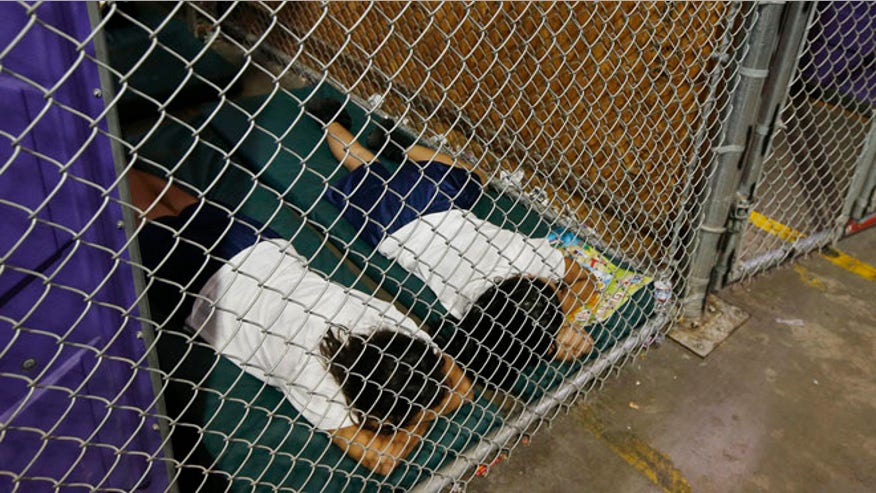Members of a newly formed task force charged with drumming up ways to attract immigrants to Cincinnati say they will focus on growing the region’s workforce by recruiting a talented immigrant pool.
Amid a growing national controversy over how the country should process children who immigrate here unaccompanied and illegally, Cincinnati Mayor John Cranley announced late last month that he had challenged a group of 80 volunteers to establish policies that will make the city more immigrant friendly.
Despite the timing of the announcement, members of the task force, which includes leaders who do business here in Butler County, say a chunk of their efforts will focus on luring legal immigrants to Ohio’s third largest city.
“We have a common belief that immigrants have made this country great and would be a wonderful asset (to the area),” Tom Fernandez, a co-chair of the immigration task force and a Cincinnati architect, said. “All we can do is create the best environment and assume that whatever we do is to attract the best that’s out there and retain a good immigrant community.”
The task force, which is comprised of attorneys, business leaders, police and even religious figures, among others, has split into subcommittees that will tackle subsets of the immigration issue — from law enforcement policies to how the city can welcome immigrants to the Queen City when they first arrive. The members hope to present a list of recommendations to the mayor by the beginning of next year, Fernandez said.
Butler County is sandwiched between two cities — Cincinnati and Dayton — that are actively working to recruit more immigrants to the area.
Both of those cities have had relatively weak foreign-born populations in the last five years. Population estimates show Dayton was home to 143,355 residents last year, and about 4.1 percent of the population in 2012 accounted for foreign-born residents. Overall, from 2008 to 2012, Ohio had a foreign-born population of 3.9 percent, according to U.S. Census Bureau estimates.
Cincinnati fared better, with 5 percent of the 297,517 people living in the city during that period estimated to be immigrants. Still, among cities of similar size Cincinnati has a noticeably smaller foreign population. St. Paul, Minn., for example, boasted an immigrant population of 17.5 percent, while immigrants in St. Louis represented 6.8 percent of the population. Five percent of the people living in Butler County from 2008 to 2012 were also foreign born.
The Jungle Jim’s effect
Yousuf Ahmad, an immigrant from Abu Dhbai who came to Cincinnati 20 years ago, said the area has struggled to accommodate immigrants. Ahmad, now 40, said he use to drive to a grocery store once a month to buy the condiments and spices he missed from his homeland.
Two decades later much has changed: the Cincinnati region has more to offer in the way of international cuisine, he says, and Ahmad is now the president and CEO of one of the region’s largest health providers, Mercy Health.
“When Jungle Jim’s opened, I was one of the people crying,” Ahmad joked of the international food market in Fairfield.
Those seemingly slight comforts of home are the ones that could attract scores of immigrants here, said Ahmad, who is sitting on the immigration task force. He believes authentic international food restaurants, culturally-charged festivals and stores stocked with ethnic offerings could make the city more attractive to immigrants.
Bringing more immigrants to the area will also help recruit the type of workers he says he needs in his hospitals to help work with patients who don’t speak English or are from different countries.
“When we see patients in our facilities and our doctors’ offices who are of a different national origin, when that customer comes in, how do we make our care culturally competent? To have people working for us, of those (different) origins can be very helpful,” Ahmad said.
Jobs have even been lost before, in part, because of Cincinnati’s lack of diversity. Chiquita Brands International Inc., known for their bananas, moved hundreds of jobs out of the city to Charlotte, N.C. in 2012. Company officials cited difficulty in recruiting multilingual employees from the area, among other major reasons, in their decision to leave. Immigrants made up 15 percent of the population in Charlotte from 2008 to 2012.
Many students who come to the U.S. for a college degree end up traveling back to their home country after school, in part because they’re no longer legally allowed to stay here, Jon Weller, the director of international admissions at the University of Cincinnati, said. In recent years, higher education experts have been trying to figure out how to keep some of those well-educated students in the U.S. long after they’ve earned their diploma.
“The more international the city is, it’s better for the city, it’s better for the university, and it’s better for the state,” Weller said.
Laws of the land
What’s less clear is how the immigrant friendly policy will impact immigrants who are living in this region illegally.
Laxed enforcement of immigration laws have followed when immigrant friendly policies have been introduced in cities across the nation.
Dayton police, for example, stopped asking for proof of citizenship from crime victims or witnesses as well as low-level crime offenders when the city’s immigrant friendly policy was introduced in 2011.
In 2012, as officials in the city of Baltimore sought to further grow it’s blossoming Asian and Latin American immigrant population, the mayor issued an executive order banning police and city agencies from launching investigations to solely inquire about the immigration status of residents.
“We’re not here to arrest you, we’re here to protect you,” Catalina Rodriguez-Lima, the director of the mayor’s immigrant and multicultural affairs office, said of the message city officials are sending to immigrants.
Cincinnati city officials will likely want to find a way to offer more resources to help immigrants here get through the citizenship process legally, Raj Chundur, a co-chair of the task force and the director of Cincinnati’s information systems, said.
“The approach is to make resources accessible to people who may not be (knowledgeable) of the system,” Chundur said of the immigration process. “(So) you know what is legal and expected from the laws of the land.”
Economics professor James Brock said there’s a big difference in the type of economic impact the two immigrant groups — legal or illegal —can have on a region. Immigrants here illegally tend to take lower-paying jobs but many can still benefit from free public assistance, such as schooling, so their presence, he said, doesn’t typically stimulate the area’s economy.
Attracting legal immigrants — especially ones who can fill in-demand openings in computer science or health fields, for example — means there’s a better chance the local economy actually benefits.
“If they’re paid well, they’re going to buy a house, shop at Macy’s and eat at Jeff Ruby’s steakhouse,” James Brock, an economics professor at Miami University, said.
Local state representative Wes Retherford (R-Hamilton) said he worries how the immigrant-friendly policies in Cincinnati and Dayton could impact residents living in Butler County.
“To be perfectly clear, I think it’s a good thing to be immigrant friendly,” Retherford said. “But, we’re talking about being friendly to both immigrants who came here both the legal way and illegally. There’s a difference there. You don’t hear anybody saying, ‘Let’s kick out the ones who aren’t here legally.’”
Immigrants who aren’t here legally, Retherford said, have stressed local law enforcement agencies in recent years. He fears if the region is branded a safe haven for those who aren’t here legally, it could further strain police departments and sheriffs’ offices.
A spokesman with the city mayor’s office said officials didn’t have time to answer questions about how or if they plan to reach out to outlying communities for input on the city’s immigrant friendly initiative.
Many immigrants are living in the region legally but the city needs to help both groups, said Douglas Halpert, an immigration attorney and task force member.
“It’s a matter of how, as a city, do you treat those that are here?” Halpert said.
Source Article from http://www.journal-news.com/news/news/local/immigrant-friendly-initiative-to-bolster-workforce/ngx3P/
Immigrant friendly initiative to bolster workforce, advocates say
http://www.journal-news.com/news/news/local/immigrant-friendly-initiative-to-bolster-workforce/ngx3P/
http://news.search.yahoo.com/news/rss?p=immigrant
immigrant – Yahoo News Search Results
immigrant – Yahoo News Search Results



